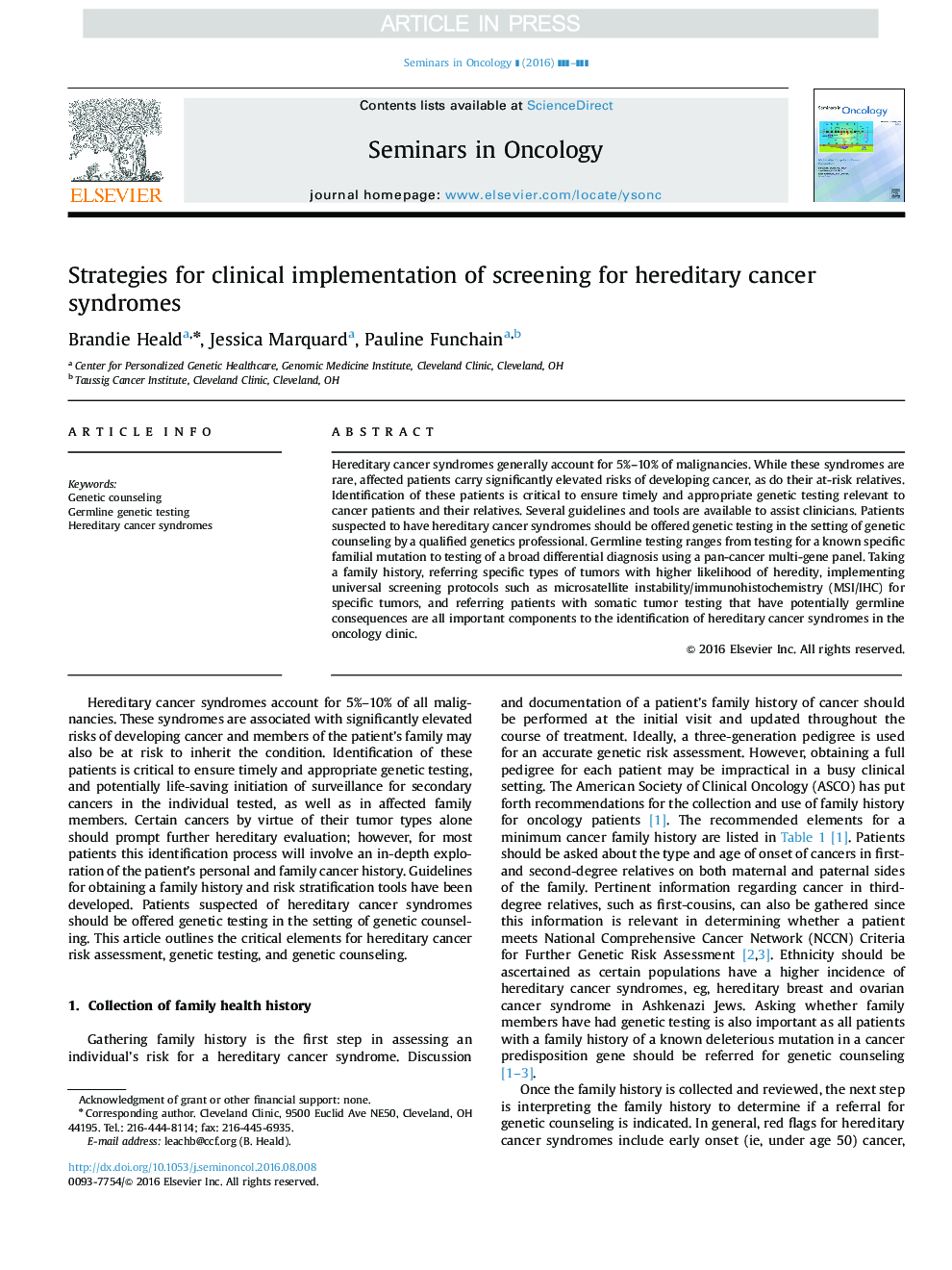| Article ID | Journal | Published Year | Pages | File Type |
|---|---|---|---|---|
| 5530305 | Seminars in Oncology | 2016 | 6 Pages |
Abstract
Hereditary cancer syndromes generally account for 5%-10% of malignancies. While these syndromes are rare, affected patients carry significantly elevated risks of developing cancer, as do their at-risk relatives. Identification of these patients is critical to ensure timely and appropriate genetic testing relevant to cancer patients and their relatives. Several guidelines and tools are available to assist clinicians. Patients suspected to have hereditary cancer syndromes should be offered genetic testing in the setting of genetic counseling by a qualified genetics professional. Germline testing ranges from testing for a known specific familial mutation to testing of a broad differential diagnosis using a pan-cancer multi-gene panel. Taking a family history, referring specific types of tumors with higher likelihood of heredity, implementing universal screening protocols such as microsatellite instability/immunohistochemistry (MSI/IHC) for specific tumors, and referring patients with somatic tumor testing that have potentially germline consequences are all important components to the identification of hereditary cancer syndromes in the oncology clinic.
Related Topics
Life Sciences
Biochemistry, Genetics and Molecular Biology
Cancer Research
Authors
Brandie Heald, Jessica Marquard, Pauline Funchain,
